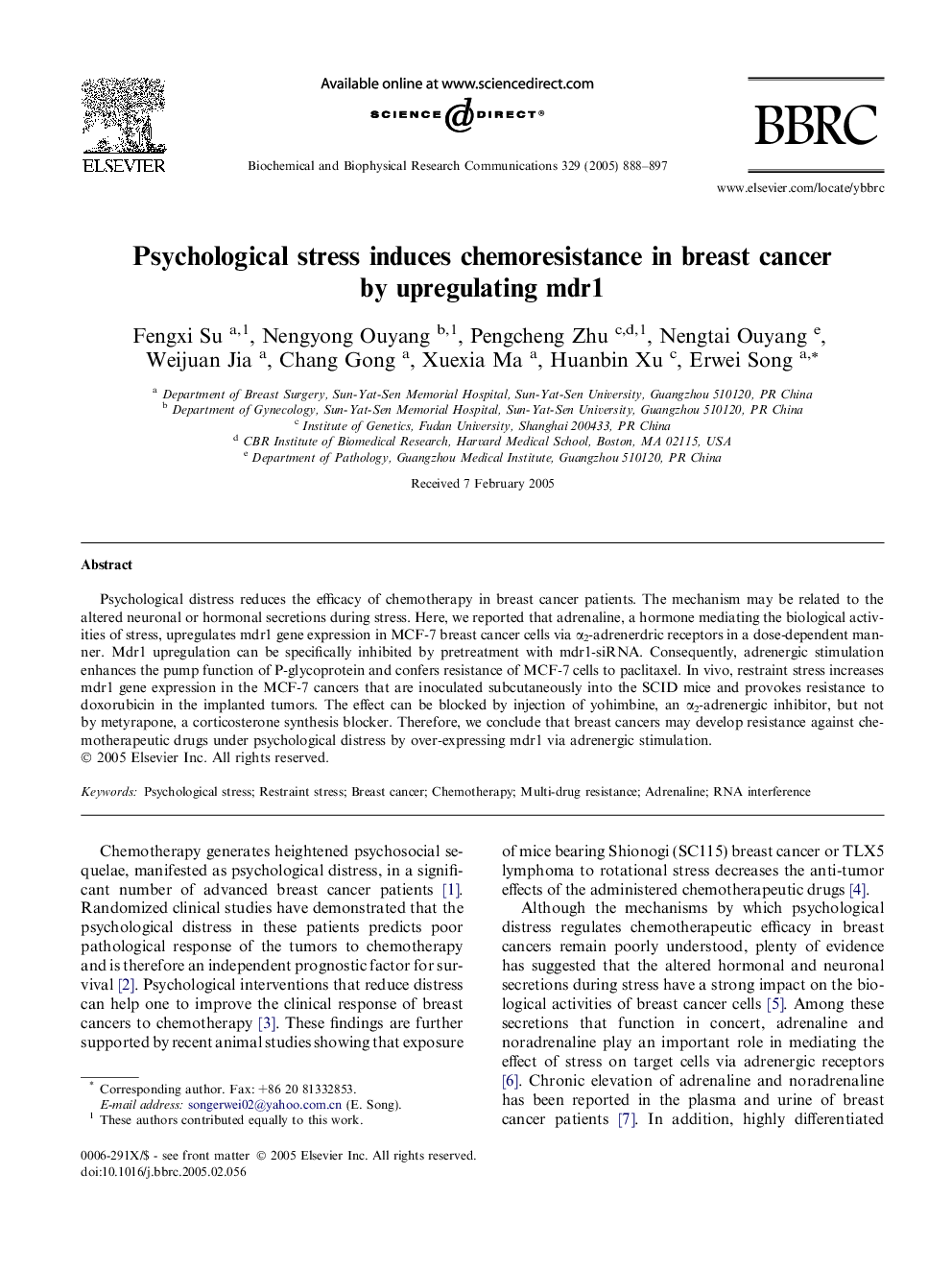| Article ID | Journal | Published Year | Pages | File Type |
|---|---|---|---|---|
| 10771060 | Biochemical and Biophysical Research Communications | 2005 | 10 Pages |
Abstract
Psychological distress reduces the efficacy of chemotherapy in breast cancer patients. The mechanism may be related to the altered neuronal or hormonal secretions during stress. Here, we reported that adrenaline, a hormone mediating the biological activities of stress, upregulates mdr1 gene expression in MCF-7 breast cancer cells via α2-adrenerdric receptors in a dose-dependent manner. Mdr1 upregulation can be specifically inhibited by pretreatment with mdr1-siRNA. Consequently, adrenergic stimulation enhances the pump function of P-glycoprotein and confers resistance of MCF-7 cells to paclitaxel. In vivo, restraint stress increases mdr1 gene expression in the MCF-7 cancers that are inoculated subcutaneously into the SCID mice and provokes resistance to doxorubicin in the implanted tumors. The effect can be blocked by injection of yohimbine, an α2-adrenergic inhibitor, but not by metyrapone, a corticosterone synthesis blocker. Therefore, we conclude that breast cancers may develop resistance against chemotherapeutic drugs under psychological distress by over-expressing mdr1 via adrenergic stimulation.
Keywords
Related Topics
Life Sciences
Biochemistry, Genetics and Molecular Biology
Biochemistry
Authors
Fengxi Su, Nengyong Ouyang, Pengcheng Zhu, Nengtai Ouyang, Weijuan Jia, Chang Gong, Xuexia Ma, Huanbin Xu, Erwei Song,
